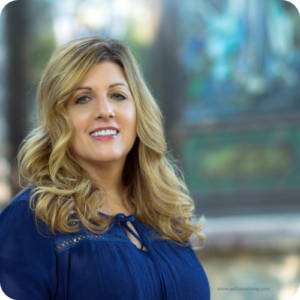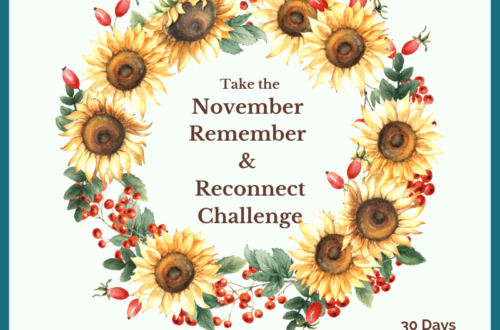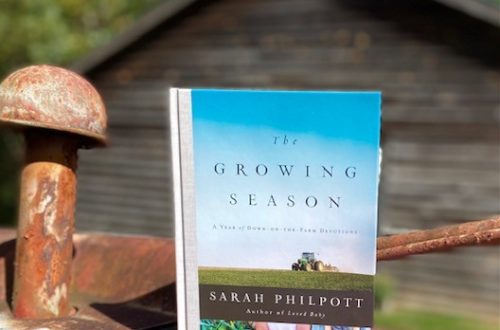
5 Tips for Becoming a Writer After Age 40
Are you over forty and wondering if it’s too late to become a writer? I was forty-six years old when I began writing for publications. If you enjoy writing and would like to pursue publication, I’d like to encourage you with five tips. But first, let’s address the question of how to begin.
How Do You Begin a Writing Career?
S-l-o-w-l-y. This is what deters people from ever getting started. But if it’s something you want to try, you have to start somewhere. And it’s like learning how to ride a bike. It’s awkward and wobbly when you first begin. But, with practice, it continually improves.
If you’re considering a writing career, then most likely, you’ve already been doing some writing in your life—writing in journals, preparing presentations, or jotting down story ideas.
The next step for most writers is to write for magazines and online publications. You can find learn about writing opportunities by searching the internet for websites such as The Write Life or by checking out resources like the Christian Writers Market Guide.
When I began my writing journey it was inconsistent. I was still homeschooling, leading a Jr. Historian club, teaching kids at church and in co-op classes, and serving as a part-time administrative assistant. Life events and chronic pain issues also played a part. My husband and children have always been my top priorities, so my writing time was sporadic.
The one thing that was consistent was my desire to learn and keep moving forward. I carved out time each year to attend writing conferences. Bit by bit, I learned about the writing industry. Nothing has prepared me more than taking classes. Even so, I have to make time to practice what I learn.
I have a creative brain with lots of ideas. Many nights I can’t sleep because my mind is swirling with snippets. Contemplating snippets is one thing. Crafting them into stories is another!
Getting ideas down on paper in a sensible, grammatically correct, yet entertaining way is challenging. To me, that’s the fun of it! But, there have been many times when I’ve had to file a piece of unfinished work away to simmer—sometimes for weeks. Sometimes for years.
Hearing that, you may think you’ve not got the time necessary to pursue writing. Ask yourself a few questions before tossing your dream into the dumpster.
What do I want to accomplish in the next twenty years? Does a desire to write keep floating to the top of the list?
Am I willing to learn new skills even if it takes me a little longer to master them?
Not knowing if my writing will ever be published on a large scale, do I still want to pursue learning the craft and aim to write something worthy of passing on to the next generation?
If you answered yes, then consider these five helpful tips:
Tip #1: Educate Yourself
Discover writing conferences in your area or in places you can travel. Don’t stress. There are writers at all stages of their writing careers there. Take classes and learn as much as you can. Check out online writing classes. You may want to consider online master classes via Write2Ignite or attending the Blue Ridge Christian Writers Conference in western NC. There are numerous others throughout the world.
Tip #2: Make New Friends
If you attend a writing conference, don’t hide in your room between classes. Connecting with others in the writing and publishing industry is immensely rewarding. One of the best things you can do is build friendships. A network of writing friends encourages one another. They help extend each other’s reach to possibly more readers of their work.
Writers help sharpen other writers’ skills. My critique group has definitely helped me become a better writer. Check out writing critique groups and find one that’s a good fit for you. You can learn more about these through an online search and at writing conferences.
Tip #3: Start Blogging
The topic of blogging could require several blog posts telling how to set up a website and begin blogging. All we have time for in this post is emphasizing the importance of blogging, especially for a beginning writer. I know that sounds overwhelming to some of you. I had no desire to blog when I first heard this advice. I floundered around with blogging for two or three years before finding my focus.
Learn everything you can about blogging. Hire help if necessary. Blogging not only hones your skills as a writer but is a way to reach a multitude of people. If you never get a book published, your heart messages are still being projected into the world. You never know the power your words may have. Be a light when you write.
Tip #4: Be Social
Writing requires much work. But it’s not just about writing. If you’re pursuing book publication, publishers need help getting the word out about who you are and what you write. It’s expensive to publish and distribute books. Most book publishers today won’t consider your manuscript if you’re not already building a base of readers. They want to see you’re involved on social media. Notice I said “involved,” not engrossed. I know you’d rather write than engage on social media. I get it. Truly, I do.
But did you know approximately 4 MILLION books were published in 2022? How will people learn about you and your book in that massive sea of books? It’s a daunting task. You can see why publishers need writers to come alongside them in getting the word out.
However, the majority of what you post will not spotlight your book. The focus is to educate, entertain, or inspire your readers. It’s not about promoting yourself. It’s about using your words to help meet the needs of others. That’s wise whether you’re pursuing publication or not.
Research various social media platforms to find a few you can focus on building. Grab a tech-savvy young adult to help get you started. Consider taking a class at your local community college or watching YouTube tutorials. If you have the means, you can hire someone to take care of social media for you. Just make sure it’s someone you trust to uphold who you are, what you stand for, and what you write.
Social media is not evil in and of itself. As in all things, people make choices in how they use it. Again, be a positive voice in a negative world.

Tip #5: Keep Moving
If you’re over forty, you may feel like you’ve got to work like a mad-dog to get your writing career started. Get to work, but keep moving physically!
As we age, we tend to slow down. After months of physical therapy, I’ve learned the importance of moving more. Many writers battle trying to work with an internet sloth service. I did that for twelve years and feel like it aged me twenty! Thankfully, we recently resolved the slow internet issue. Still, we writers can spend too many hours scurrying down internet research trails or typing for hours when the creative brain is on fire. To avoid further health issues, I have to set myself a timer when I’m working. I write for about an hour, and then I step away from it for 20 minutes. The breaks are good for the brain and the body. Plus, it’s a great time to catch up on chores or call your mom.
Self-motivation and perseverance are required if you want to become a writer. A writing career is typically a slow and steady progression.
Last Thought on Becoming a Writer
Writers continually search for words that more accurately portray what they want to say. “Career” may not be the right word to use if it percolates thoughts of a job that pays your bills. Even if you devote 30-40 hours a week to writing for various publications, it may not pay all your bills. In other words, don’t quit your day job just yet–especially if your food, electricity, and water are depending upon it.
The most successful authors living solely off of their writing income have been writing for a long time. But there are always exceptions. Take note of these successful authors who started their writing careers later in life:
Mark Twain (Age 41)
J.R.R. Tolkien (Age 45)
Laura Ingalls Wilder (Age 65)
Anna Mary Robertson, “Grandma Moses,” began painting at age 78. She published her autobiography when she was 92 years old.
So, it’s possible! Writing for publications is not a hobby. It’s a job. Call it a career, if you like. Many writers say it’s a calling.
If you’ve dreamed of becoming a writer, there’s no time like the present to begin developing it into a reality. You’ll never know if you don’t try.

Motivated by the power of story, history, and His Story, Sally Matheny’s passion is telling the next generation wondrous things.
Her nonfiction writing appears in worldwide, national, and regional publications. SchoolhouseTeachers.com features two of her WWII history units. In2025, End Game Press will release Sally’s first nonfiction picture book, T is for Together: An Introduction to the American Spirit of WWII.
Learn more at SallyMatheny.com., where you’ll find encouraging blog posts, book reviews, and free resources.





4 Comments
Tama Fortner
Wonderful advice! I’m so glad we met at one of those conferences. 🙂
Sally Matheny
Oh, me too, Tama! You’re a blessing!
J.D. Wininger
I’m still trying to fathow how in the world you’re over 40 already Ms. Sally. 🙂 Wonderfully encouraging words ma’am. There’s still hope. God’s blessings sweet sister-in-Christ.
Sally Matheny
You’re too kind, Mr. J.D.
Thankful you’re continuing your writing journey even in the midst of ranching and health issues. The words you craft on your blog inspire, encourage, and educate so many folks!